studio[Ci], Kennedy & Violich, Johnston Marklee among winners of 2017 LafargeHolcim Awards North America
By Justine Testado|
Tuesday, Oct 17, 2017
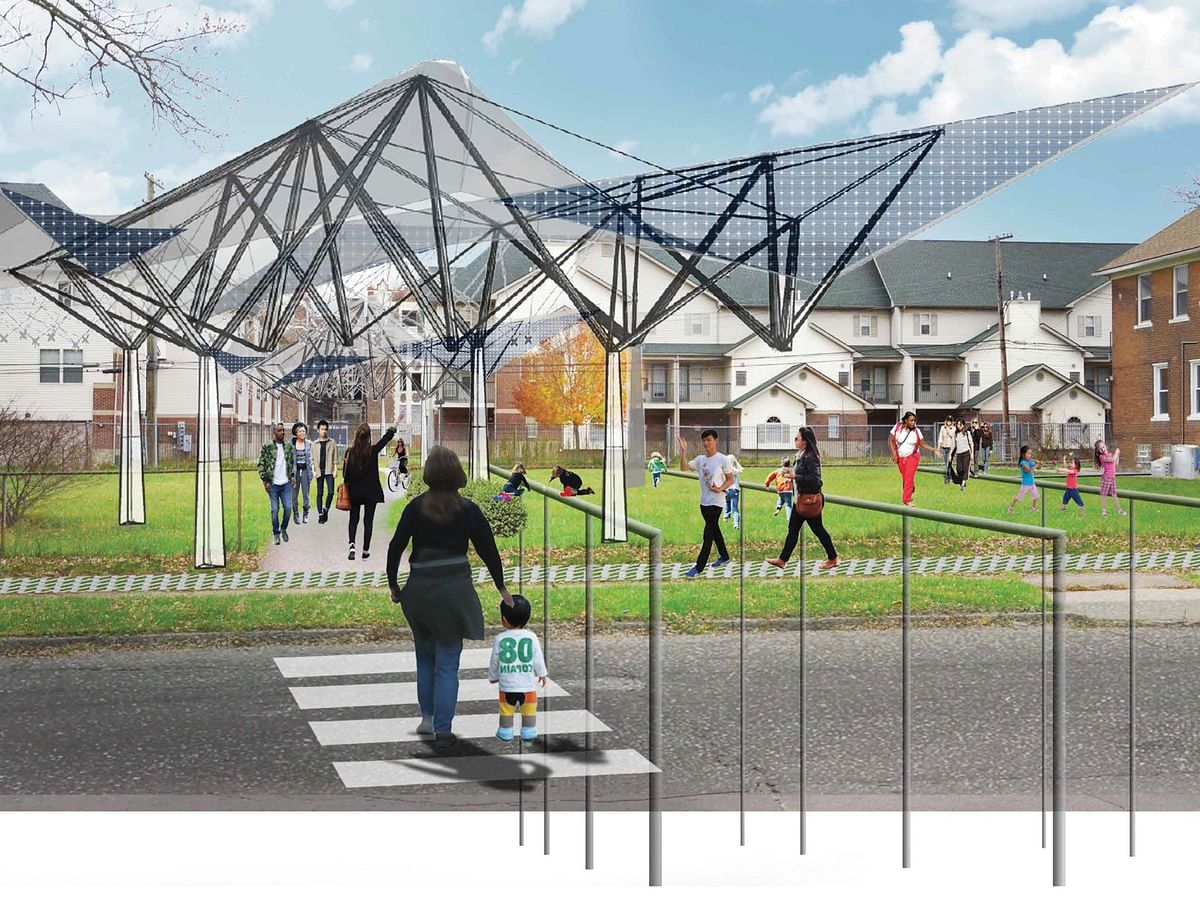
Related
The North American competition winners of the 2017 LafargeHolcim Awards were recently revealed during a ceremony in Chicago. This time around, the winning entries revolved around sustainably improving the quality of life for less affluent communities as well as improving the connection between the natural and built environments.
Teams led by studio[Ci] of Detroit, LWPAC + Intelligent City from Vancouver, Canada, and Boston-based Kennedy & Violich Architecture won the top three prizes. The Acknowledgement Prizes went to teams led by Terreform ONE, Johnston Marklee, LEVER Architecture and project^, and the University of Arkansas Community Design Center. Last but not least, four student projects won the Next Generation Prizes. Check 'em out below.
GOLD AWARD: Bottom-up neighborhood planning, Detroit, MI, USA
Main author: Constance C. Bodurow - studio[Ci], Detroit, USA
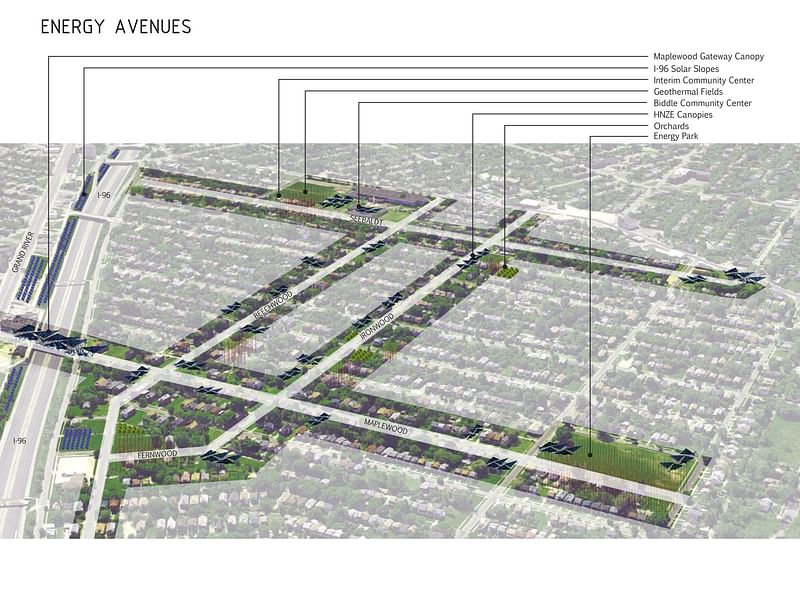
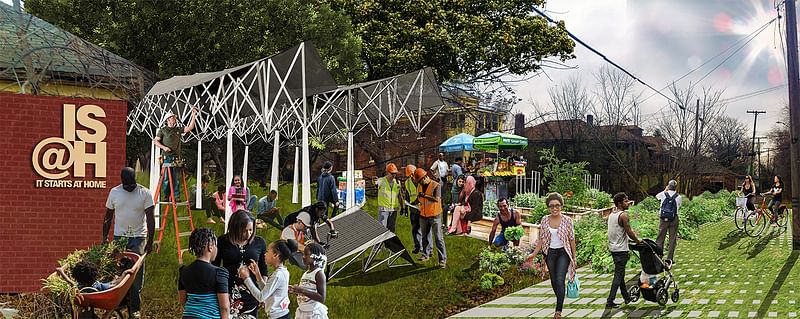
Project summary: “This proposed project is for a neglected district in Detroit that repositions infrastructure as a civic project, under the name of The Seebaldt Pilot (TSP). Building on longterm community engagement, the team proposes a pilot project for local energy and food production, water and waste management, and community empowerment. Solar photovoltaic canopies, rainwater collection, geothermal wells, and community gardens are stitched through the existing neighborhood on currently empty lots. The collectively owned and managed infrastructure is both a gathering point and a new revenue stream for additional community services and an enhanced public realm.”
Additional authors: David Cross - It Starts at Home (IS@H), Detroit, USA; Darrel West - Detroit, USA; Will Bright - It Starts at Home (IS@H), Detroit, USA; Donald Carpenter - Great Lakes Stormwater Management Institute, Southfield, USA; Mark Hagerty - Michigan Solar Solutions, Commerce, USA; Nathaniel Autrey - DTE Energy, Detroit, USA; Mark Drotar - Detroit, USA; Meaghan Markiewicz - Detroit, USA; Drew Bradford - Detroit, USA; Paige Spagnuolo - Detroit, USA; Ruiyi Liu - Detroit, USA; Amin Toghiani - Detroit, USA; Yochen Pan - Detroit, USA; Tim Miller - Detroit, USA; Yu Zhu - Detroit, USA; Brandi Patterson - Detroit, USA; Cory Benjamin - Detroit, USA; Drew Mittig - Detroit, USA; Fares Ahmed - Detroit, USA; Lina Alosachie - Detroit, USA; Karl Seidman - Detroit, USA; Leigh Carroll - Detroit, USA; Grant Williams - Detroit, USA; Sam Jung - Detroit, USA; Kelly Blynn - Detroit, USA; David Musselman - Detroit, USA
SILVER AWARD: Modular mid-rise housing, Vancouver, Canada
Main authors: Cynthia Wilson and Oliver Lang - LWPAC + Intelligent City, Vancouver, Canada
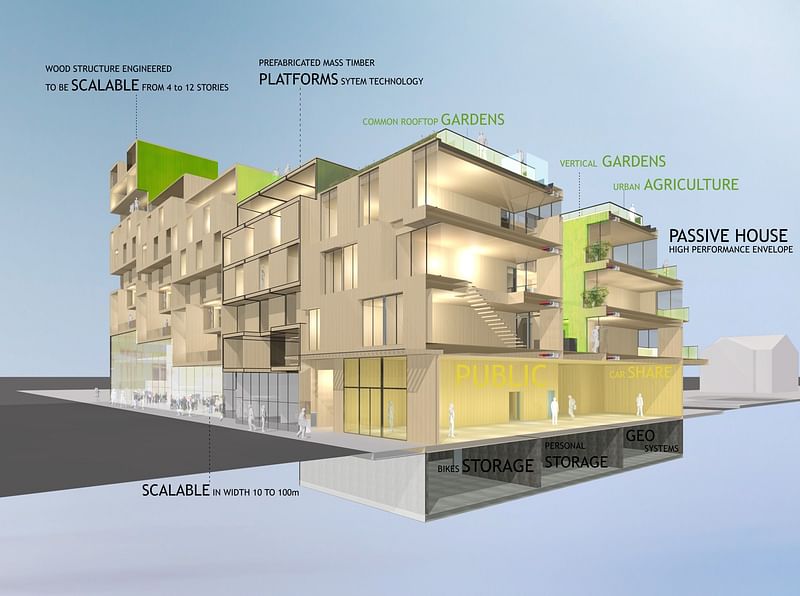
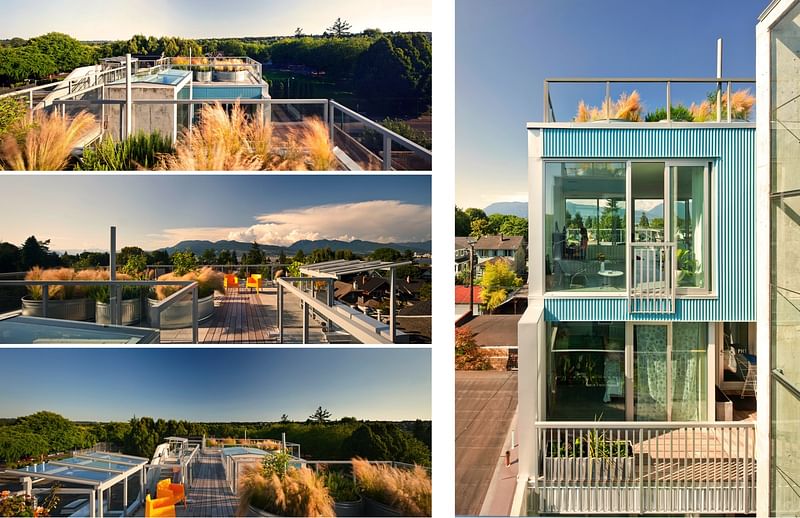
Project summary: “To provide affordable housing, the proposal introduces a midrise, mixed use building type. The project is part of a longer study by the authors to improve the economic and spatial models for affordable housing. The adaptable timber panelized construction allows for versatility in unit layouts and the building mass, creating a variegated expression. The project achieves net zero energy through a high insulation value together with geothermal heating and cooling. Through flexibility, the proposed system empowers residents to invent their own future.”
Additional authors: Martina Caniglia - LWPAC + Intelligent City, Vancouver, Canada; Ryan Gillespie - LWPAC + Intelligent City, Vancouver, Canada; Thomas Bocahut - LWPAC, Vancouver, Canada; Jenny Lee - LWPAC, Vancouver, Canada; Mingyue Zhang - LWPAC, Vancouver, Canada
BRONZE AWARD: Net-zero greenhouse for Wellesley College, Boston, USA
Main authors: Sheila Kennedy and Frano Violich - Kennedy & Violich Architecture, Boston, USA
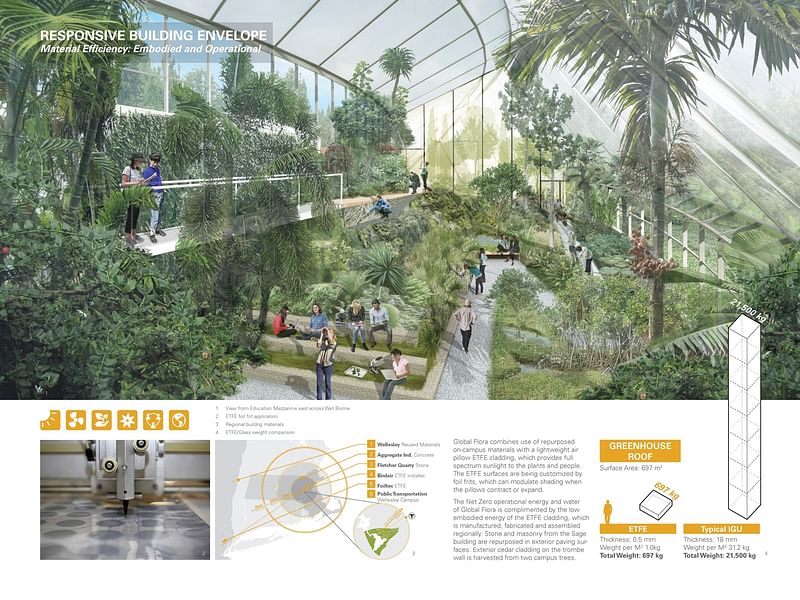
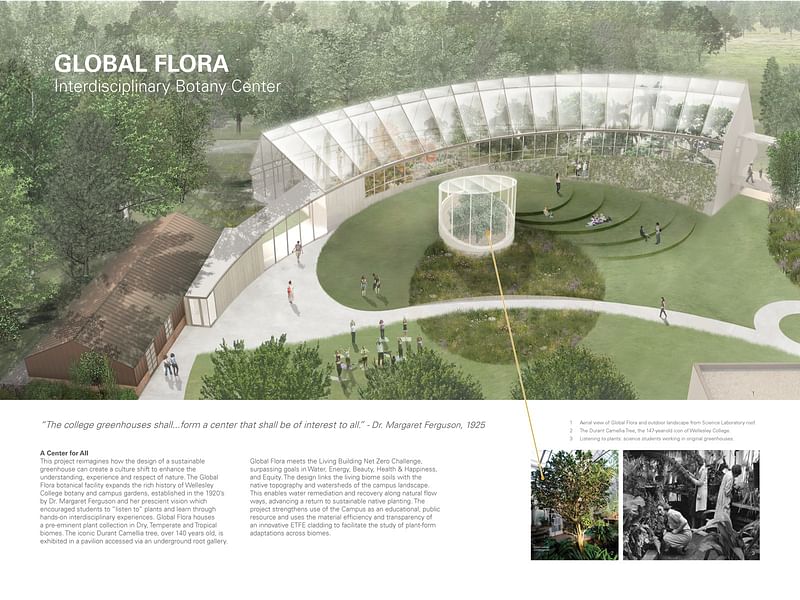
Project summary: As an expansion of the botanical collection at Wellesley College, this project is proposed as “an educational link between the institution and the community. This project reimagines the greenhouse – typically an energy- and water-intensive program – as a net zero energy building. Particular care is taken to source all materials for the projects locally and with low resource intensity both for construction and operations. The lightweight pillow cladding weighs just 3 percent of what the same area would out of typical insulated glass. The three biomes – dry, temperate, and humid – help support each other through passive air and heat exchange.”
Additional authors: John Swift - Buro Happold, Boston, USA; Pratik Raval - Transsolar, New York City, USA; Suzan Tillotson - Tillotson Design, New York City, USA; Kevin Callery - Jensen Hughes, New York City, USA; David Conway - Nitsch Engineering, New York City, USA; James Vermuelens - Vermeulens, New York City, USA; Thomas Amoroso - Andropogon, Philadelphia, USA; David Small; Scott Kelly - ReVision, Philadelphia, USA
ACKNOWLEDGEMENT PRIZE WINNERS: All four prizes went to teams in the USA. “A team from the University of Arkansas Community Design Center in Fayetteville, AR, developed an urban watershed plan to improve an entire region in Conway, AR. LEVER Architecture and project^ in Portland, OR, designed a prototype high-rise completely made of wood for their city. Johnston Marklee in Los Angeles plan to renovate and expand the UCLA Graduate Art Studios in Culver City, CA, exclusively using sustainable materials and methods; and Terreform ONE in Brooklyn, NY, developed a modular-design farm for edible insects in New York City.”
NEXT GENERATION PRIZE WINNERS: “The first place Next Generation prize went to Georgina Baronian from Princeton University, NJ, USA. She developed a universally applicable roof design with a cooling function. Second prize went to Jason Heinrich from the University of British Columbia in Vancouver, Canada, for a set of rules for establishing a sustainable urban neighborhood in the city of Vancouver. Sarah Gunawan from the University of Buffalo, NY, USA, received the third prize. She investigated the potential for people and wildlife to coexist based on an example in Markham, ON, Canada. Fourth prize went to Peteris Lazovskis of Harvard University in Cambridge, MA, USA. His experiments investigated climate control in buildings using the example of the Commonwealth Mental Health & Wellness Center.”
Find the Acknowledgement and Next Generation Prize entries in the gallery below. You can read more about all the winning entries here.

RELATED NEWS Winners of the 2017 LafargeHolcim Awards Latin America competition

RELATED NEWS Eleven winners announced in LafargeHolcim Awards 2017 Europe competition

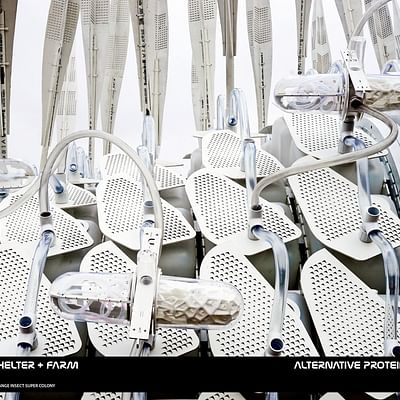
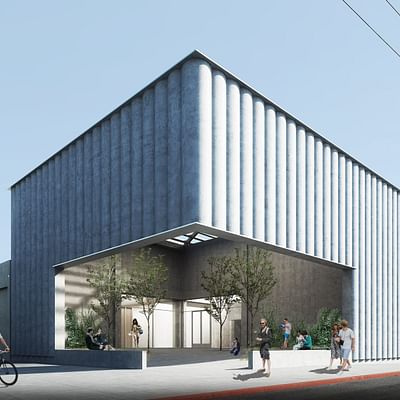
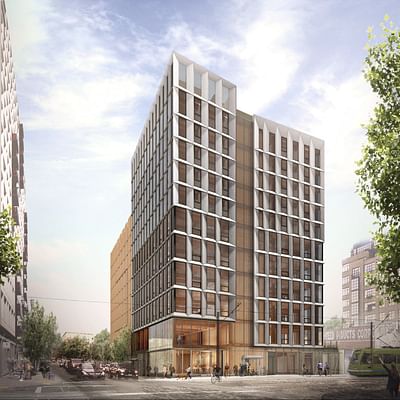
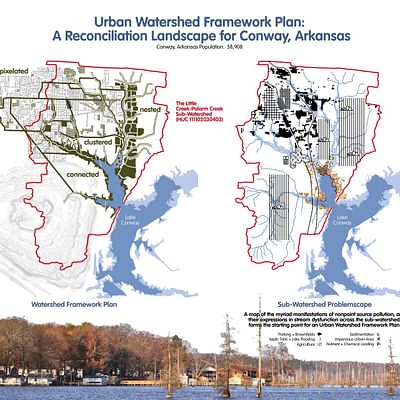

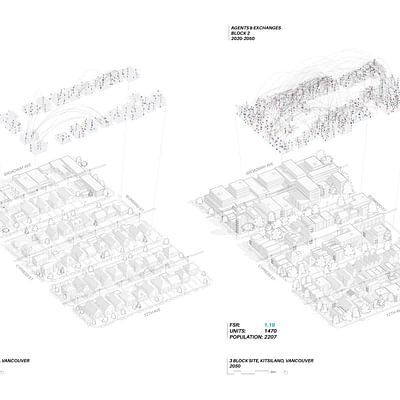
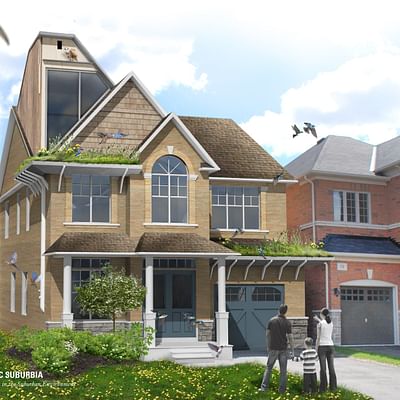
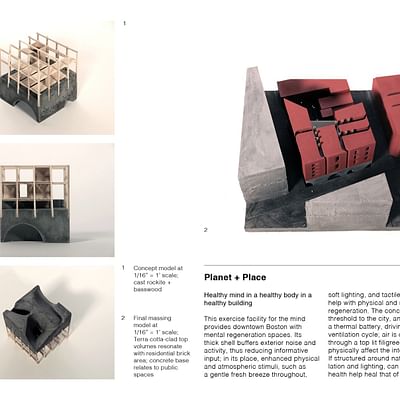

Share
0 Comments
Comment as :